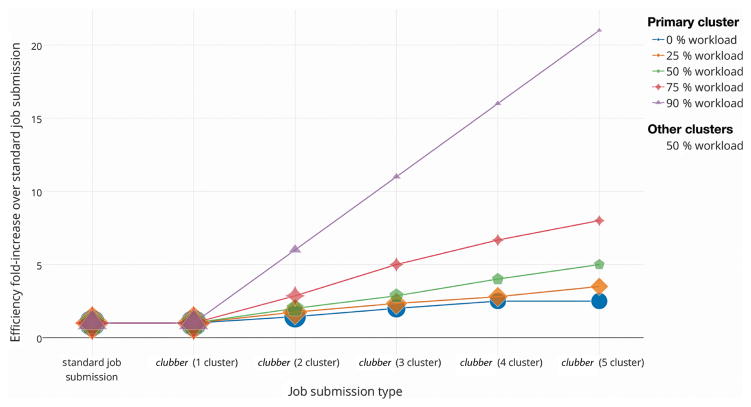Figure 2.
Efficiency fold-change of clubber vs. standard job submission: Efficiency fold increase in submitting jobs using clubber as compared to a standard job submission. Primary cluster workload is varied between 0 % and 90 %, where 0 % workload is defined here as the ability to run at most 100 jobs in parallel (100 CPU cluster). Compute time is measured for a submission of 1000 jobs, each requiring 1-min CPU time and no data transfer. Active workloads for remote clusters registered with clubber are conservatively estimated to be consistently at 50 % of possible total. None of these clusters dropped below that threshold in our use experience. They have, however, gone significantly higher. Thus, the actual gain in computation efficiency could be even higher than that displayed.

